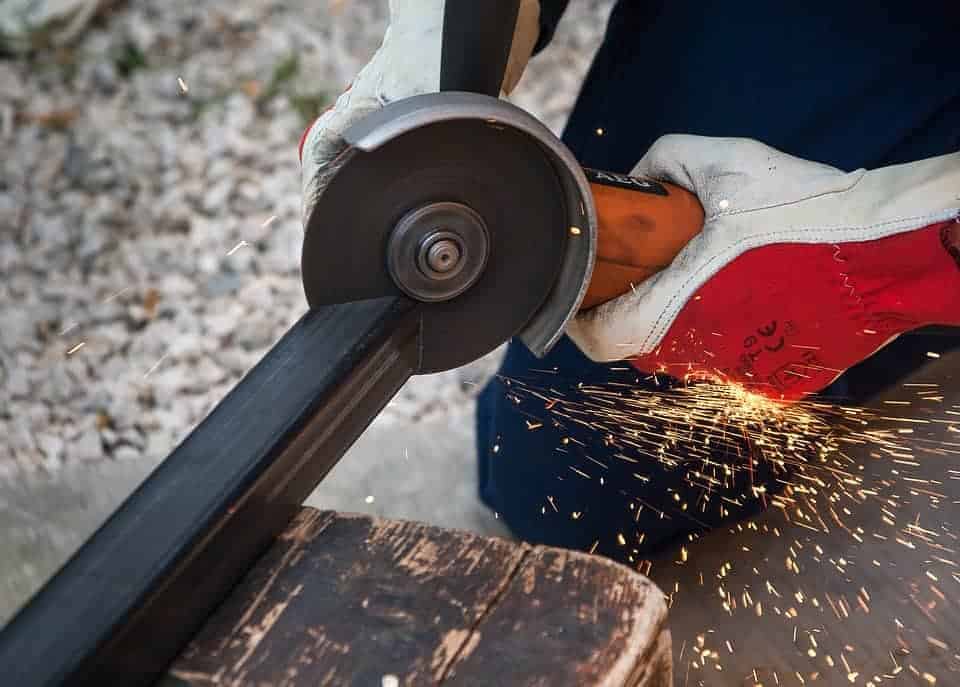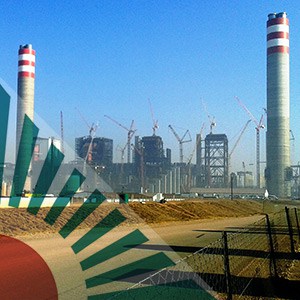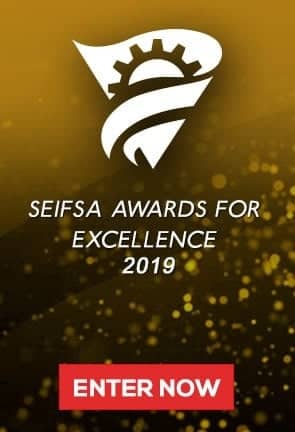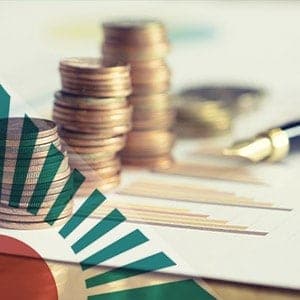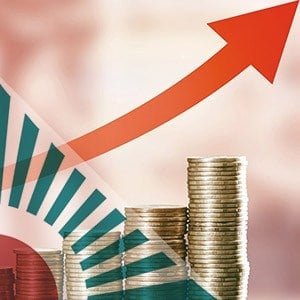POSITIVE GROWTH IN MANUFACTURING PRODUCTION ENCOURAGING BUT VOLATILE, SAYS SEIFSA
Johannesburg, 14 March 2019 - The sustained positive trajectory in production of the broader manufacturing sector is encouraging but still volatile, so says Steel and Engineering Industries Federation of Southern Africa (SEIFSA) Economist Marique Kruger.
Speaking after this afternoon’s release of manufacturing production figures by Statistics South Africa (Stats SA), Ms Kruger said “although the year-on-year output had consecutively decreased in the three months leading to December 2018, production was still positively trending”. The encouraging performance has continued into the new-year as companies stay buoyant despite a generally softening domestic business confidence and business expectation. However, the volatility in the data is more pronounced when analysed on a month-to-month basis.
The latest preliminary seasonally-adjusted data published today captures a year-on-year increase in production in the broader manufacturing sector in January 2019 when compared with December 2018. Manufacturing production increased by 0,3% in January 2019 compared with January 2018. On a month-to-month basis, output in the broader manufacturing sector decreased by 2,0% percent in January 2019, compared with December 2018.
“Despite the encouraging long-term performance in the wider manufacturing sector, a major concern still remains, as the largest negative contributions in the three months ended January 2019 were made by the broader metals and machinery cluster of industries. In addition, the apprehension is that of a broad-based weakening in activity in industrial production - including the mining, electricity, gas and construction sectors impacting negatively on manufacturing, given the high level of interdependence,” Ms Kruger said.
She added that moreover, the manufacturing sector continues to face headwinds underpinned by increased volatility, low domestic demand, high petrol prices which compounds logistics costs of companies and increasing energy cost. She said encouragingly, the expansion in annual output in January 2019 provided a basis for companies to increase their capacity towards higher production and profits, driven by a firming domestic and regional demand.
“SEIFSA is confident that companies in the broader metals and engineering cluster will continue to stay resilient despite the continuous headwinds and less than required improvement in domestic demand. This is important towards ultimately growing the domestic economy and sustaining current job levels,” Ms Kruger concluded.
Ends
SEIFSA is a National Federation representing 23 independent employer Associations in the metals and engineering industries, with a combined membership of 1600 companies employing around 200 000 employees. The Federation was formed in 1943 and its member companies range from giant steel-making corporations to micro-enterprises employing fewer than 50 people.
Important Research for the Metals & Engineering Industry
The Steel and Engineering Industries Federation of Southern Africa (SEIFSA) requests your company’s support for the 2019 research study that the Manufacturing, Engineering and Related Services Sector Education and Training Authority (MERSETA) awarded to SEIFSA.
SEIFSA in partnership with FR Research Services, led by Prof Hoosen Rasool, to conduct research on the extent of artisan skills imbalances (shortages or surpluses) in the Metal Industry and the use of accredited recognition of prior learning (ARPL) as a vehicle to increase the pool of skilled labour. The findings are expected to feed into the MERSETA sector skills planning process and provide skills intelligence for informed decision-making in its structures.
SEIFSA would appreciate your support by giving Prof Hoosen Rasool and his research team your inputs in the form of an interview or short questionnaire in this research investigation. As a key stakeholder in the industry, we value your insights on this matter.
Please contact Melanie Mulholland or Michelle Norris at SEIFSA if you require further clarification about the study. They can be reached at (011) 298 9443 during office hours. SEIFSA appreciates your support of this industry-benefitting research initiative.
SEIFSA Honours Companies With Best Corporates Social Investment Programmes
Johannesburg, 7 March 2019 – Businesses form an integral part of the communities in which they operate. Therefore, it stands to reason that, similar to other responsible citizens, businesses should also play a positive role and invest in the communities in which they operate, so says the Steel and Engineering Industries Federation of Southern Africa (SEIFSA) Chief Executive Officer Kaizer Nyatsumba.
“Everything we do as the business community impacts, one way or the other, on the communities in which we operate in. We should, therefore, strive to give back to the members of those communities,” Mr Nyatsumba said.
He warned, however, that corporate social investment (CSI) projects should not be carried out as tick-box exercises. Instead, he said they should be meaningful and constructive and benefit community members in a sustainable manner.
To celebrate companies that go out of their way to invest in communities in which they operate, SEIFSA will present the CSI Award to a company whose corporate social investment programme/s between July 2017 and December 2018 had a major impact on the lives of its beneficiaries.
In 2018, the Best Corporate Social Responsibility Programme of the Year Award was scooped by Schneider Electric which, according to the judges in this category, not only complied with legislative and other requirements, but also genuinely gave back to society in a manner that creates a lasting impact.
Commenting on this category at the time, the judges said: “In an environment where the struggle to survive and prosper is challenging on its own, giving back to society becomes even more important. There are many companies in the country that have embraced these challenges and go the extra mile year after year to give back to society and make an impact on the communities in which they operate – and it is only appropriate that we honour and celebrate them”.
Other awards that form the seven categories of the SEIFSA Awards for Excellence are:
- The Most Innovative Company of the Year, which will be awarded to a company that showed the best level of innovation in research and development or production between July 2017 and December 2018;
- The Most Transformed Company of the Year Award will be received by a company that showed the highest transformation level in its ownership and the composition of its Board of Directors, Executive Management and Managerial Team between July 2017 and December 2018. This award category pits companies employing fewer than 100 people against those of similar size, and companies employing more than 100 people against others of similar size.
- The Health and Safety Award of the Year will be offered to a company with the best legal compliance record in Health and Safety or the lowest Lost-Time Injury Frequency rate between July 2017 and December 2018;
- The company rated the highest in customer service performance between July 2017 and December 2018 will receive the Customer Service Award of the Year;
- This is the Decade of the Artisan, and an award will be made to the company that trained the highest number of artisans between July 2017 and December 2018 2018;
- The Environment Stewardship Award will go to a company that has successfully implemented greening initiatives in its day-to-day business operations in 2018.
Mr Nyatsumba encouraged companies operating in the metals and engineering sector to submit their entries for the seven categories before the deadline date of 26 April 2019. Participants can enter by visiting the SEIFSA Awards website (www.seifsaawards.co.za).
The Awards are open to all companies in the metals and engineering sector, and not only those that are members of Associations affiliated to SEIFSA. Awards winners will be honoured at a ceremony that will take place at the IDC Conference Centre in Sandton on 23 May 2019.
SEIFSA is a National Federation representing 23 independent employer Associations in the metals and engineering industries, with a combined membership of 1600 companies employing around 200 000 employees. The Federation was formed in 1943 and its member companies range from giant steel-making corporations to micro-enterprises employing fewer than 50 people.
SEIFSA Disappointed By NERSA’S Decision To Approve Above- Inflation Tariff Increase For ESKOM
JOHANNESBURG, 07 MARCH 2019 – The Steel and Engineering Industries Federation of Southern Africa (SEIFSA) is bitterly disappointed by the decision by the National Energy Regulator of South Africa (NERSA) to grant Eskom above-inflation electricity tariff increase of 9,41% and 8,1% respectively in the next two years.
Although Eskom’s initial application to NERSA had been for a 15% annual electricity tariff hike for the financial years 2019/20, 2020/21 and 2021/22, SEIFSA had argued, in its submission to the Regulator, for an increase equal to or below the prevailing prime rate of 5.1% at the time.
Speaking after NERSA’s announcement this afternoon, SEIFSA Economist Marique Kruger said the decision to grant Eskom increases of 9,41%, 8,1% and 5,2% over the next three years is deeply worrisome, especially since a cap on tariff increases would have contributed directly to reduced intermediate input costs for beleaguered businesses and impacted positively on businesses’ bottom line.
“Considering that investment decisions are often driven by the opportunity cost and the return on investment, NERSA has missed a unique opportunity to support businesses towards improving profits. A much lower tariff increase would have rendered businesses in the metals and engineering cluster much more attractive for both domestic and foreign direct investment, thus impacting positively on employment,” Ms Kruger said.
She added that given the current depressing business environment, an impending carbon tax, high petrol prices and additional logistics costs, NERSA’s decision did not bode well for business. She said NERSA’s decision was certain to lumber companies in the M&E with higher operational costs.
Ms Kruger noted that energy is a vital input for industrial production and the broader M&E industries, which collectively spend approximately R14 billion on electricity per annum. She said NERSA’s ill-advised decision was bound to worsen uncertainty within the sector over the next three to four years, making it more difficult for companies to plan production processes ahead.
“The difficulties will also span higher input costs, increased volatility in production and low sustainability of current job numbers. The direct impact to electricity-intensive sub-sectors carrying high job numbers will be alarming, since more companies may close down,” Ms Kruger cautioned.
SEIFSA Welcomes Continuous Improvement In SA’S GDP And Urges Companies To Capitalise On Improving Local Demand To Boost Competitiveness
Johannesburg, 5 March 2019 – The Steel and Engineering Industries Federation of Southern Africa (SEIFSA) welcomes South Africa’s continuous improvement in the gross domestic product (GDP) for the fourth quarter of 2018, and urges companies to capitalise on improving local demand to boost competitiveness.
South Africa’s real GDP increased by 1,4% in the fourth quarter of 2018, following a revised seasonally-adjusted 2,6% quarter-on-quarter (q/q) increase recorded in quarter three of 2018. The broader manufacturing sector’s performance was equally encouraging, with the sector significantly contributing to growth in GDP in the fourth quarter by 0,6 percent.
Speaking after today’s release of GDP numbers, SEIFSA Chief Economist Michael Ade said hitherto the South African economy had looked vulnerable and faced prospects of a continuous slowdown amid high debt and deficits, increasing production costs and unemployment. However, since the rebound in growth in quarter three 2018 from a technical recession, there is a promising basis for increased economic activity and expansion of industry activity, driven by firming local demand and promising manufacturing production.
Dr Ade said despite the improvement in domestic economic activity, there is still a need for policy consistently to support initiatives aimed at continuously improving GDP in order to ensure sustainability. This is especially given that the World Bank, the National Treasury and the South African Reserve Bank all slashed their initial GDP growth forecasts for 2019, based on an increasingly difficult domestic environment.
Dr Ade said continuous support for business is vital. He said although challenges to local business operations are still prevalent and business expectation is still very volatile, the robust domestic demand will provide impetus for companies to service not only the local markets, but also the regional African and global markets, despite the additional logistics costs involved.
He said the prospects for improved international trade for South Africa are rosy, given the boost early last week by the news that US President Donald Trump granted China another amnesty on possible further import tariff hikes. In return, China promised not to depreciate its currency as a weak yuan makes Chinese exports cheaper. Dr Ade said the scenario creates a conducive atmosphere for increased South African exports which will help reverse a negative domestic trade balance recorded in January 2019.
“The slowdown in global trade war will also boost trade patterns and production patterns,” he said.
Dr Ade said in the current era where companies are increasingly making use of advance manufacturing processes - involving the use of innovative technology - to improve products or manufacturing processes, there is hope that capital intensity will also translate to higher GDP. He said while the improvement in GDP growth will ensure that in the longer term changing patterns of trade and technology are moving to the benefit of local businesses, there is a need to improve efficiency correspondingly and promote job friendliness.
“SEIFSA applauds the Government’s efforts aimed at generally supporting and reconfiguring strategic but beleaguered State-owned enterprises (SOEs), while also containing high debt levels. The initiative will also rectify the dreadful situation at several SOEs by taking decisive measures to improve governance, strengthen leadership and restore stability. The efforts which will also deal with profligacy and the corrosive effects of corruption will help in restoring the integrity of the identified institutions, which are key to the survival of the manufacturing sector, including its diverse metals and engineering cluster of industries,” Dr Ade said.
He added that SEIFSA specifically welcomes urgent interventions aimed at preventing the recent electricity blackouts by Eskom from spiraling out of control. He said the ripple effect from load shedding will inevitably place businesses under duress, discourage investment and impact negatively on manufacturing production and growth levels.
Dr Ade said continuous support for the broader manufacturing is key, especially considering that manufacturing is amongst the sectors which contributed positively to the lift in fourth-quarter GDP growth momentum, increasing by 4,5%.
He said the manufacturing sector seems to be slowly regaining its influence, as evidenced by repeated recordings of positive monthly output figures since April 2018. He said the sector is arguably the most attractive sfor job creation, with the largest indirect job creation multiplier potential, but needs more support to ignite investment and employment.
SEIFSA is a National Federation representing 23 independent employer Associations in the metals and engineering industries, with a combined membership of 1600 companies employing around 200 000 employees. The Federation was formed in 1943 and its member companies range from giant steel-making corporations to micro-enterprises employing fewer than 50 people.
Further Decline In The Purchasing Managers’ Index A Cause For Concern, Says SEIFSA
Johannesburg, 1 March 2019 - The Steel and Engineering Industries Federation of Southern Africa (SEIFSA) is disappointed by a further decline in overall business activity in the broader manufacturing sector, as reflected by the Absa Purchasing Managers’ Index (PMI) released today.
The latest seasonally-adjusted data captured the numbers dipping further below 50, which separates expansion from contraction in manufacturing activity, with the composite PMI decreasing to 46.2 in February 2019, from 49.9 in January 2019. Given that it was the second consecutive decrease recorded in 2019, the trend is a cause for concern. This is especially so given the need to expand industry activity continuously and improve on competitiveness in order to ensure sustainable employment.
“It is more disappointing to note that the deterioration in the headline PMI was underpinned by sharp decreases in the new sales orders and business activity sub-indices. The performance of the employment sub-index is also worrisome, highlighting the prevailing difficulty in sustaining jobs by the broader manufacturing sector,” SEIFSA Economist Marique Kruger said.
She added that since the PMI is an indicator of the economic health of the broader manufacturing sector, including its Metals and Engineering (M&E) cluster of industries, the data highlight the significant challenges still faced by companies in the sector. The volatility in the headline PMI continues to reflect the burden borne by manufacturing companies against the backdrop of fluctuating input costs and increasing fuel and energy costs, largely underpinned by a volatile rand.
“However, given the resilience of the M&E cluster of industries, SEIFSA encourages businesses to plan production processes ahead, despite the prevailing uncertainty, especially given the current slowly improving economic environment,” Ms Kruger concluded.
SEIFSA is a National Federation representing 23 independent employer Associations in the metals and engineering industries, with a combined membership of 1600 companies employing around 200 000 employees. The Federation was formed in 1943 and its member companies range from giant steel-making corporations to micro-enterprises employing fewer than 50 people.
SEIFSA Concerned About Further Decrease In The PPI For January 2019
Johannesburg, 28 February 2019 - The Steel and Engineering Industries Federation of Southern Africa (SEIFSA) is concerned about a further decline in the Producer Price Index (PPI) data for intermediate manufactured goods as released by Statistics South Africa (Stats SA) today.
SEIFSA Economist Marique Kruger said the latest PPI data affirm a further decrease in selling price inflation for the sub-industries in the metals and engineering (M&E) cluster.
The data show that the annual change in the PPI for intermediate manufactured goods, which is measured in factory gate prices, slowed from 5 percent in December 2018 to 3.8 percent in January 2019. The deceleration in the PPI for intermediate manufactured goods is in line with a slowdown in the PPI for final manufactured goods, which decreased to 4.1 percent in January 2019, from 5.2 percent in December 2018.
“The PPI for intermediate manufactured goods is a proxy for selling price inflation in the M&E sector. A decreasing trend in the PPI for intermediate manufactured goods, therefore, does not bode well for producers in the sector, who have less leeway to recover the losses incurred due to volatility in input costs, thereby preventing them from improving on margins,” Ms Kruger said.
She added that a lower trending PPI for intermediate manufactured goods was concerning, especially given the current volatility of input costs for the sector, which is captured by SEIFSA’s composite input cost index.
“A deterioration in selling price inflation has the potential of eroding the existing positive differential between input cost inflation and selling price inflation. This is disappointing news for businesses, which may not be able proceed with business operations, despite a slowly improving domestic economy,” Ms Kruger concluded.
SEIFSA is a National Federation representing 23 independent employer Associations in the metals and engineering industries, with a combined membership of 1600 companies employing around 200 000 employees. The Federation was formed in 1943 and its member companies range from giant steel-making corporations to micro-enterprises employing fewer than 50 people.
SEIFSA Awards For Excellence 2019 – Call For Entries
Johannesburg, 26 February 2018 – The Steel and Engineering Industries Federation of Southern Africa (SEIFSA) invites companies operating in the metals and engineering sector to submit their entries for the 2019 SEIFSA Awards for Excellence – which are open to all employers in the sector, including those which are not members of SEIFSA.
Now in their fifth year, the annual SEIFSA Awards for Excellence were born out of the need to encourage growth and celebrate excellence in the metals and engineering sector. The Awards offer a wonderful opportunity for companies operating in this crucial sector to receive well-deserved acknowledgement and respect by industry peers for their capabilities, expertise and innovation.
“In the current tough economic conditions, we at SEIFSA believe that it is critically important for those companies that excel at what they do to get the acknowledgement and recognition they so richly deserve,” SEIFSA Chief Executive Officer Kaizer Nyatsumba said.
Entrants will be assessed on their performance in the period July 1 2017 to December 31 2018 in seven different categories, namely:
- The Most Innovative Company of the Year, which will be awarded to a company that showed the best level of innovation in research and development or production in 2018;
- The Health and Safety Award of the Year will be offered to a company with the best legal compliance record in Health and Safety or the lowest Lost-Time Injury Frequency rate in 2018;
- Entries are also invited from companies whose Corporate Social Investment (CSI) programme/s in 2018 had a major impact on the lives of their beneficiaries;
- The company rated the highest in customer service performance in 2018 will receive the Customer Service Award of the Year;
- The Most Transformed Company of the Year Award will be received by a company that showed the highest transformation level in ownership, the composition of its Board of Directors, Executive Management and Managerial Team in 2018 (this award category pits companies employing fewer than 100 people against those of similar size, and companies employing more than 100 companies against others of similar size);
- This is the Decade of the Artisan, and an award will be made to the company that trained the highest number of artisans in 2018;
- The Environmental Stewardship Award will go to a company that has successfully implemented greening initiatives in its day-to-day business operations in 2018.
Mr Nyatsumba encouraged manufacturers operating in the metals and engineering sector to take advantage of the opportunities for recognition offered by the increasingly prestigious SEIFSA Awards for Excellence and submit their entries for the seven categories before the deadline date of Friday, 26 April 2019. Participants can enter by visiting the SEIFSA Awards website (www.seifsaawards.co.za).
Winners of the Awards will be honoured at a ceremony that will take place at the IDC Conference Centre in Sandton on 23 May 2019.
SEIFSA Welcomes Further Easing Of Inflation For The Month Of January 2019
SEIFSA Welcomes Further Easing Of Inflation For The Month Of January 2019
Johannesburg, 20 February 2018 - The Steel and Engineering Industries Federation of Southern Africa (SEIFSA) welcomes the further easing of inflation in January, as indicated by Consumer Price Index (CPI) data released by Statistics South Africa (StatsSA) today.
The StatsSA data indicate that the annual headline CPI was 4.0 percent in January 2019, down from 4.5 percent in December 2018. The month-on-month movement in the CPI was -0.2 percent in January 2019. This bodes well for businesses operating in the metals and engineering (M&E) sector.
Speaking after the release of the data, SEIFSA Economist Marique Kruger said it was reassuring that the headline inflation now trends below the mid-point of the South African Reserve Bank’s target range of 3 percent to 6 percent, providing a basis for firm consumer demand.
This is a third consecutive decrease in headline inflation from November 2018, which is consistent with a general decrease in petrol prices over the same period.
“The continuous slowdown in prices in January 2019 is encouraging, given its extended implications on higher demand for both the final manufactured goods of the broader manufacturing sector and the intermediate goods of the M&E sector,” said Ms Kruger.
She said core inflation had been trending under 4.5 percent from January last year and it was encouraging to note that core inflation – w which excludes food, non-alcoholic beverages, fuel and energy – was 4.4 percent in January 2019, unchanged from December 2018.
“SEIFSA will continue to monitor the inflation variable because of its derived importance for the M&E cluster of industries and the broader economy. The domestic inflation trend will also be an important consideration, amongst other significant factors, when members of the South African Reserve Bank’s Monetary Policy Committee) meet in March 2019,” Ms Kruger concluded.
SEIFSA is a National Federation representing 23 independent employer Associations in the metals and engineering industries, with a combined membership of 1600 companies employing around 200 000 employees. The Federation was formed in 1943 and its member companies range from giant steel-making corporations to micro-enterprises employing fewer than 50 people
Cosatu’s Protest Action for the Western Cape Will Take Place on 19 February 2019
INTRODUCTION
Management will be aware, from recent media reports, that the Congress of South African Trade Unions (Cosatu) is engaged in protest action around the country in the form of a national strike today.
However, protest action planned for the Western Cape will take place on Tuesday, 19 February 2019.
This Management Brief provides some basic background to the issue and guidance to Management in dealing with the intended protest action.
PROTEST ACTION AND THE LABOUR RELATIONS ACT
The Labour Relations Act (LRA) permits registered trade unions or a federation of trade unions, such as Cosatu, to undertake protected protest action to promote the social and economic interests of workers, provided that they observe the procedural requirements contained in Section 77 of the LRA
It is important to note that protest action in terms of Section 77 of the LRA is only protected if the issue in dispute has been considered by NEDLAC and the applicant concerned has given to Nedlac 14 days’ notice of its intention to proceed with such protest action. In the absence of these conditions, any protest action would not be protected.
It has been confirmed that Cosatu has filed a Section 77(1)(b) notice with NEDLAC, advising of its intention to participate in a socio-economic strike and the NEDLAC Section 77 Standing Committee has determined the notice to be compliant with the administrative requirements of the LRA.
Consequently, employees participating in any form of stay-away or protest activity today and on Tuesday, 19 February 2019 will be protected by the normal rules regarding protected protest action to promote or defend the socio-economic interest of workers, namely: no-work, no-pay and no-disciplinary action.
RECOMMENDED MANAGEMENT ACTION
SEIFSA recommends that Management adopts the following course of action in dealing with any stay-away on 19 February 2019:
Inform all workers that any absences related to the protest action will be treated on the following basis:
- No work, no pay;
- No disciplinary action;
- A shift for leave pay and leave enhancement pay qualification purposes will be lost in respect of the day’s absence; and
- Any overtime worked during the course of the week will be paid at ordinary rates to make up for the lost ordinary working hours on 19 February
The Staff of SEIFSA’s Industrial Relations and Legal Services Division are available on (011) 298-9400 to provide any further advice and/ or assistance to Management on the contents of this Management Brief.


